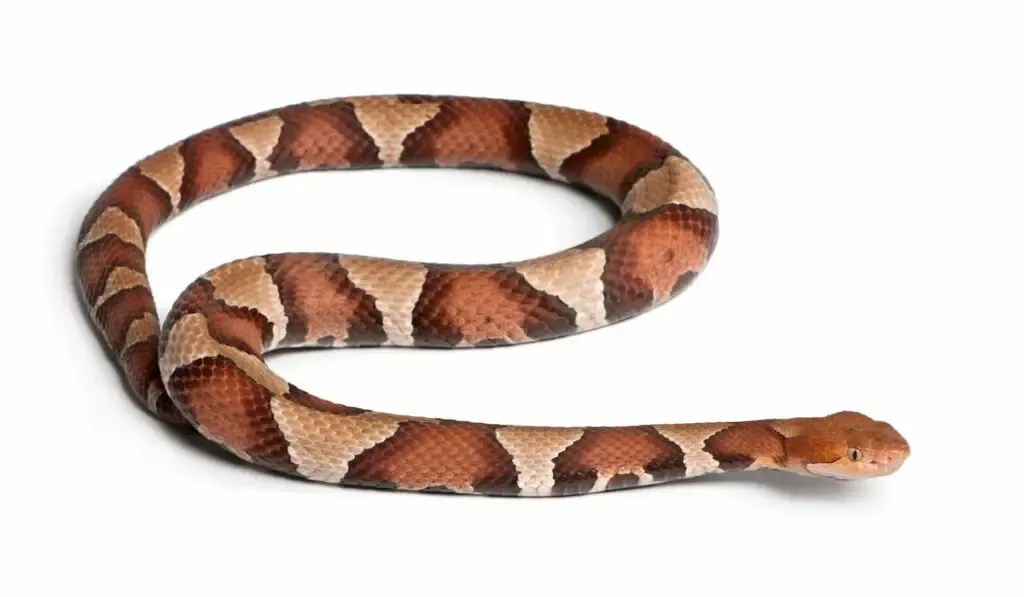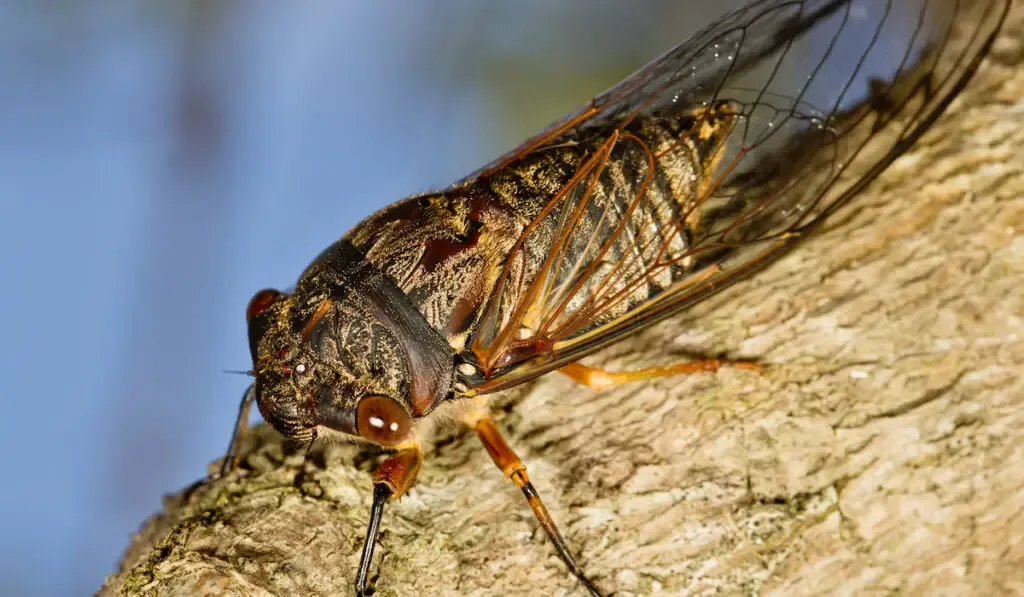It’s now been a few weeks since the cicadas started making their way across huge swaths of the country.
It’s something that happens every 17 years, and once they come out of the ground, countless swarms of cicadas can be seen everywhere clinging on trees, buzzing picnics, and gobbling up gardens.
People, naturally, worry about how to get rid of them. The best answer, though, is to simply let nature do its job and let their natural predators slowly take them out. Squirrels, frogs, birds, and reptiles love to eat them.
Will copperheads eat cicadas? Copperheads will eat cicadas with gusto. They and every other type of snake will be eating them in abundance until the population slowly starts to dwindle.

Table of Contents
People Should Take Precaution
Every parent, property owner, and business should know that high numbers of cicadas will likely lead to an explosion of wildlife. All types of animals who had to scratch and claw to get a meal will now have a much more reliable, easy-to-access food source.
Getting fat won’t be so much of a chore, so animals will naturally start to mate and grow their numbers because there is now an ecosystem to support them.
More squirrels and birds are one thing, but what about snakes?
Copperheads are one of the most common venomous snakes in the country, and they can be found in many parts of the eastern United States. People regularly report copperhead snake bites at parks, in national forests, and even some backyards.
When copperheads see just how available cicadas are, they will also become bolder in where they will go and where they will nest. It’s something every dad, mom, property owner, and the first responder should know and anticipate.
People should be more aware of the possible presence of snakes as they spend more time outdoors.
Cicadas Are a Natural Food Source
Cicadas and copperheads go nicely together because their habitats overlap.
Most of the time, copperheads love to stay in wooded areas. They love to be near trees and in thick brush.
Cicadas, once they emerge from underground, search for the nearest tree or vertical line that they can climb. The combination of cicadas and trees is an attractive target for copperhead snakes.

What You Should Know
It’s unrealistic to make drastic changes to your lifestyle based on the threat of a snake bite. Everyone who goes outdoors or camping in the woods should always maintain some level of awareness and notice what’s going on in their surroundings.
During the cicada infestation, people should just take special note of the increased likelihood that snakes will be afoot.
Certainly, a copperhead bite is dangerous and will likely lead to hospitalization. However, these snakes aren’t very aggressive.
Most of the time, bites happen when people get too close or step on the snakes unwittingly. Still, there are thousands of copperhead bites reported in the U.S. every year, so you shouldn’t shrug off the possibility.
Just know that copperheads are likely to seek out shaded areas when the sun is out and it’s hot outside. Most of the time, they’ll hide in roots or under rocks, but if there are picnic benches around, check for any snakes under them before you sit down.
If you’re out camping, go through your gear carefully because copperheads have been known to slither under tables and chairs to escape the heat.
At night, copperheads will gather around trees looking for food like cicadas. Something to know if you’re out at night for a walk and passing through heavily wooded areas.
If you do go on walks, you can reduce the risk of snake bites by wearing long pants and closed-toed shoes like boots that are made of strong material.
No flip-flops or anything like that. With basic precautions, you’ll avoid getting bitten and can still enjoy the summer despite the cicada infestation.
